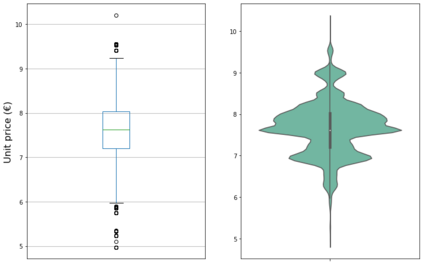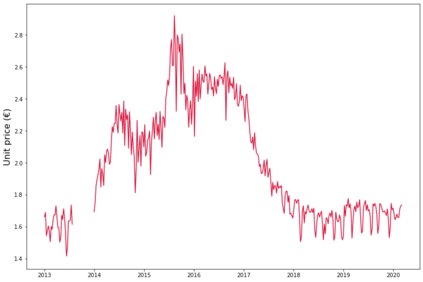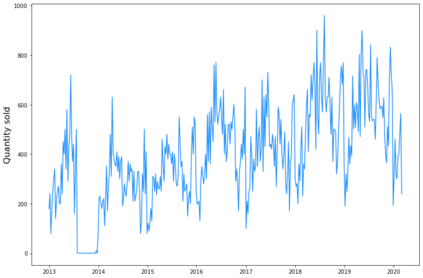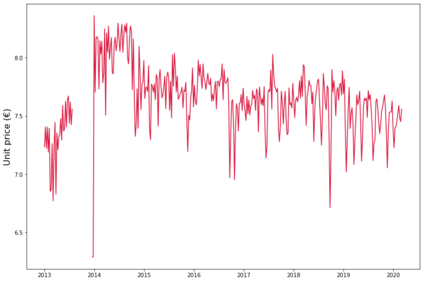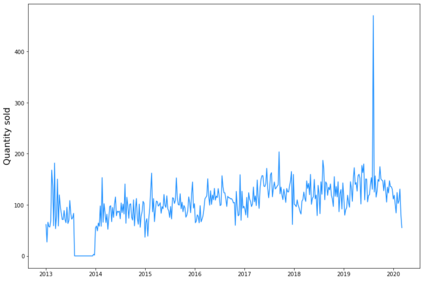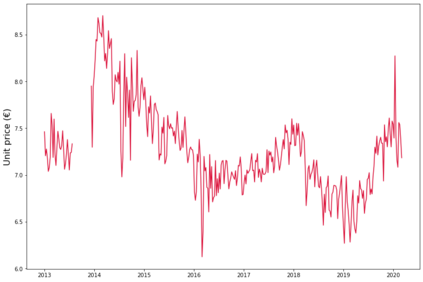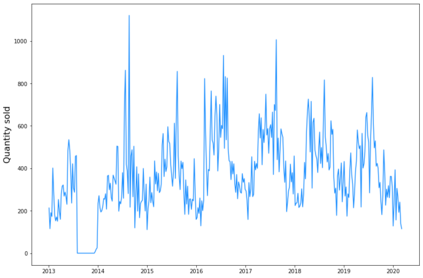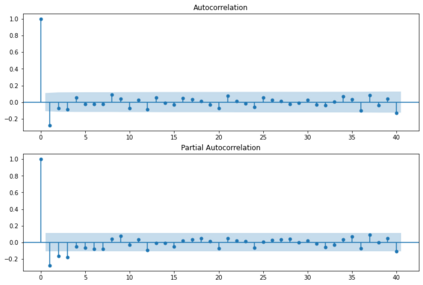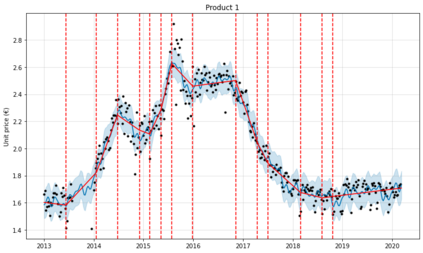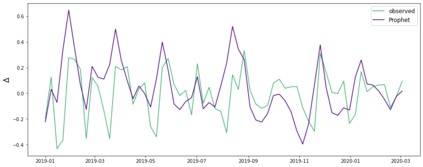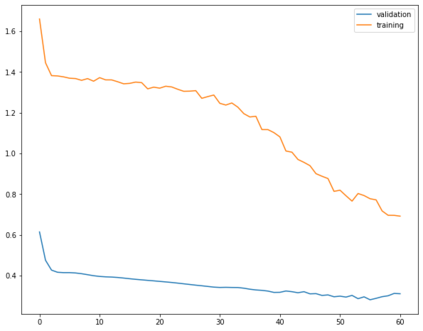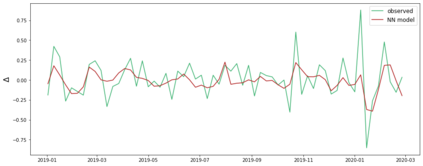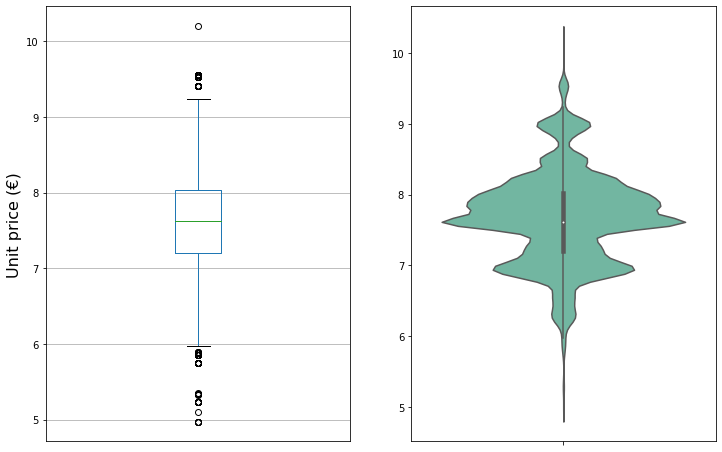Setting sale prices correctly is of great importance for firms, and the study and forecast of prices time series is therefore a relevant topic not only from a data science perspective but also from an economic and applicative one. In this paper we examine different techniques to forecast sale prices applied by an Italian food wholesaler, as a step towards the automation of pricing tasks usually taken care by human workforce. We consider ARIMA models and compare them to Prophet, a scalable forecasting tool by Facebook based on a generalized additive model, and to deep learning models exploiting Long Short--Term Memory (LSTM) and Convolutional Neural Networks (CNNs). ARIMA models are frequently used in econometric analyses, providing a good benchmark for the problem under study. Our results indicate that ARIMA models and LSTM neural networks perform similarly for the forecasting task under consideration, while the combination of CNNs and LSTMs attains the best overall accuracy, but requires more time to be tuned. On the contrary, Prophet is quick and easy to use, but considerably less accurate.t overall accuracy, but requires more time to be tuned. On the contrary, Prophet is quick and easy to use, but considerably less accurate.
翻译:正确确定销售价格对于公司非常重要,因此,对价格时间序列的研究和预测不仅从数据科学角度,而且从经济和实用角度,都是一个相关主题。在本文件中,我们研究了意大利食品批发商应用的不同预测销售价格技术,以此作为实现通常由人类劳动大军负责的定价任务自动化的一个步骤。我们考虑了ARIMA模型,并将其与先知进行比较,先知是一种基于普遍添加模型的可缩放的预测工具,也是利用长期短期记忆(LSTM)和革命神经网络(CNNs)的深层学习模型。ARIMA模型经常用于计量经济学分析,为所研究的问题提供了一个良好的基准。我们的结果表明,ARIMA模型和LSTM神经网络在考虑的预测任务方面运行类似,而CNN和LSTMs的组合则达到最佳的总体准确性,但需要更多的时间加以调整。相反,先知使用得快、容易,但总体准确性要低得多,但需要更多的时间加以调整。相反,先知的准确性要小得多。

